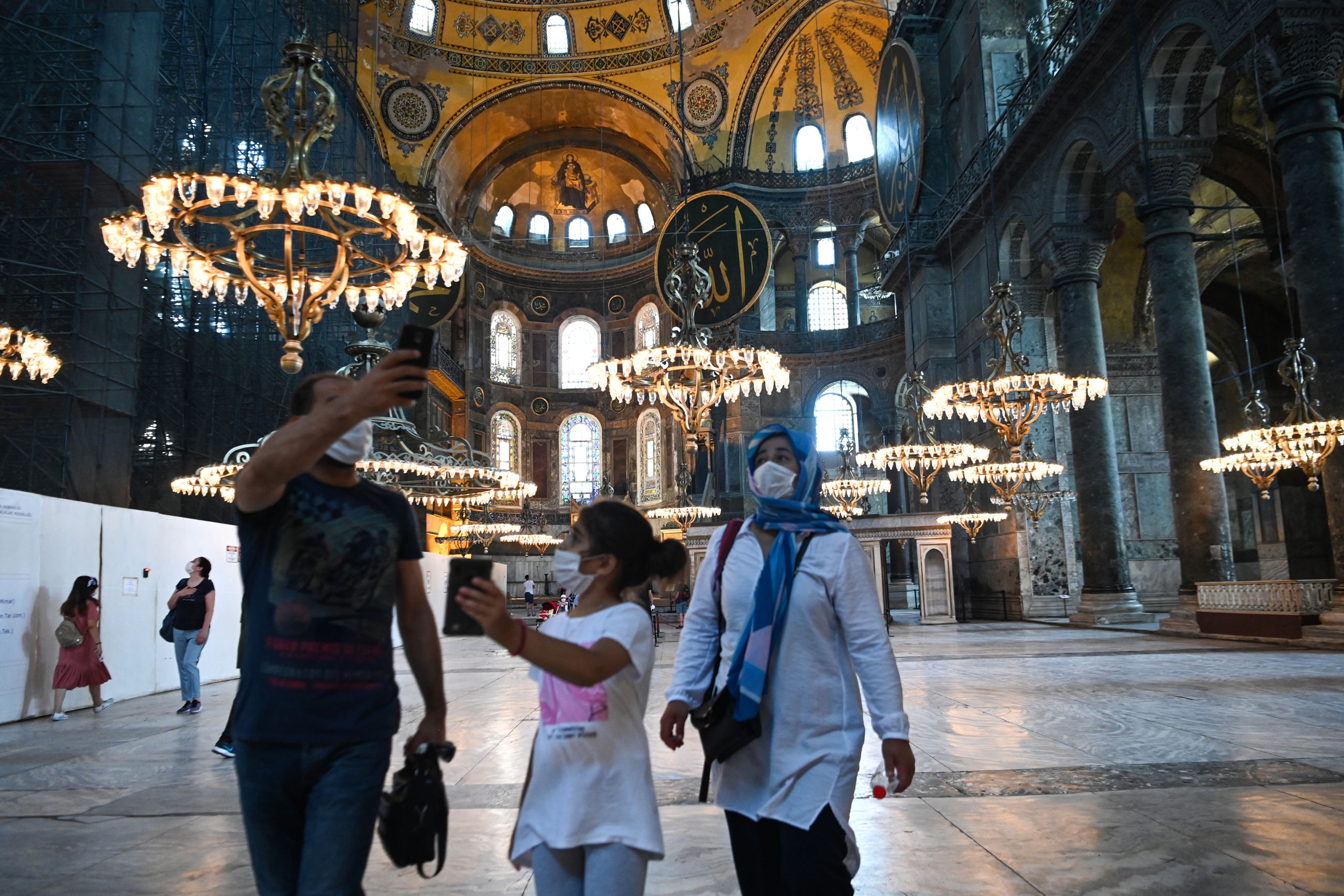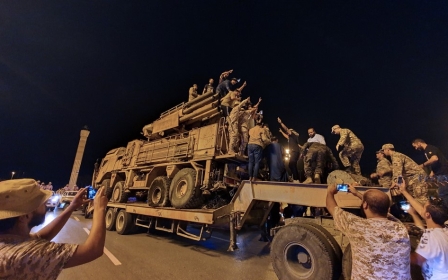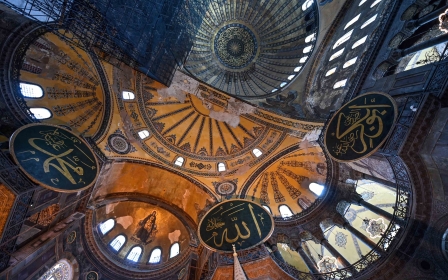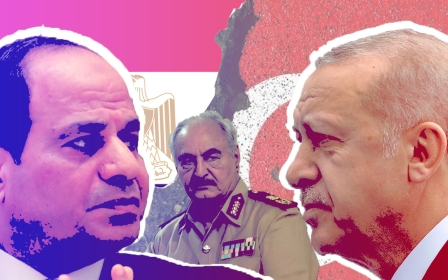Hagia Sophia: Russia warns Turkey on mosque conversion plan

Russia has issued a stern warning to Turkey against turning the Hagia Sophia in Istanbul into a mosque, a proposal that Turkish President Recep Tayyip Erdogan has been pushing in recent months.
A ruling is expected from Turkey's top court in the coming days on the status of the building, which was originally built as an Orthodox Church before being converted into a mosque after the 1453 Ottoman conquest of Istanbul.
It was later turned into a museum under the secularising reforms of Mustafa Kemal Ataturk, the founding father of modern Turkey.
Both Russian officials and the Russian Orthodox Church expressed concerns about the possibility of the Hagia Sophia being turned back into a mosque.
Russia's Patriarch Kirill said he was "deeply concerned" by the move, saying the Hagia Sophia was "one of the greatest monuments of Christian culture".
"A threat to Hagia Sophia is a threat to the whole of Christian civilisation, and therefore to our spirituality and history," the Orthodox church leader said in a statement on Monday.
"To this day, for every Russian Orthodox person, Hagia Sophia is a great Christian shrine."
Kremlin spokesman Dmitry Peskov said that although the Hagia Sophia was a domestic Turkish issue, he hoped the status of the building - which he described as having "sacred value" for Russia - as a World Heritage Site would be "taken into account".
Deputy Foreign Minister Sergei Vershinin also told reporters that Russia hoped "the global significance of the object will be taken into account".
Tensions rising
The move to convert the building has angered Christians and heightened tensions with the European Union, especially neighbouring Greece.
While spats with Europe are nothing new for Erdogan's government, the warning from Russia is a rare rebuke from a country that has maintained a generally cordial and cooperative relationship with Turkey in recent years.
Both countries have been involved in diplomatic talks over attempting to resolve the Syrian civil war, despite supporting opposite sides in the conflict.
In recent months, however, the increasing involvement of both Turkey and Russia in the conflict in Libya has seen a deterioration in their relationship.
Turkey backs the internationally recognised Government of National Accord (GNA) in Tripoli, while Russia supports military commander Khalifa Haftar, who has been leading a military campaign against the GNA.
Discussions between Turkey and Russia on resolving the Libya crisis set for mid-June were postponed, nominally due to the launch of a GNA-led military campaign to retake the coastal city of Sirte.
Middle East Eye propose une couverture et une analyse indépendantes et incomparables du Moyen-Orient, de l’Afrique du Nord et d’autres régions du monde. Pour en savoir plus sur la reprise de ce contenu et les frais qui s’appliquent, veuillez remplir ce formulaire [en anglais]. Pour en savoir plus sur MEE, cliquez ici [en anglais].




